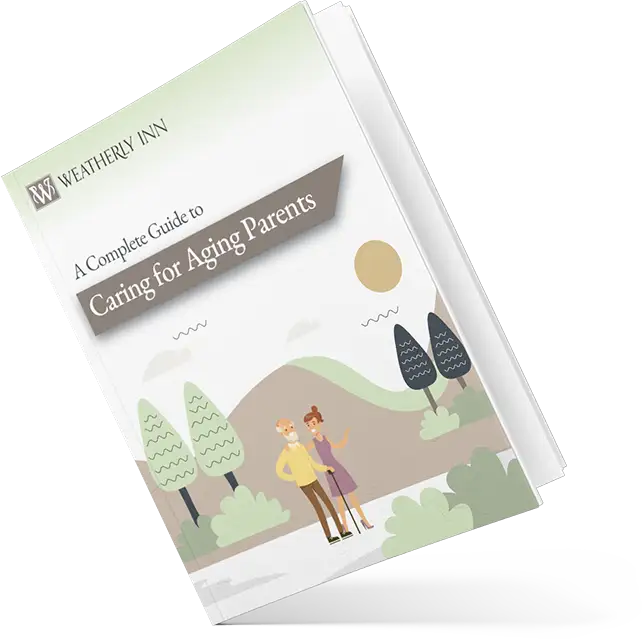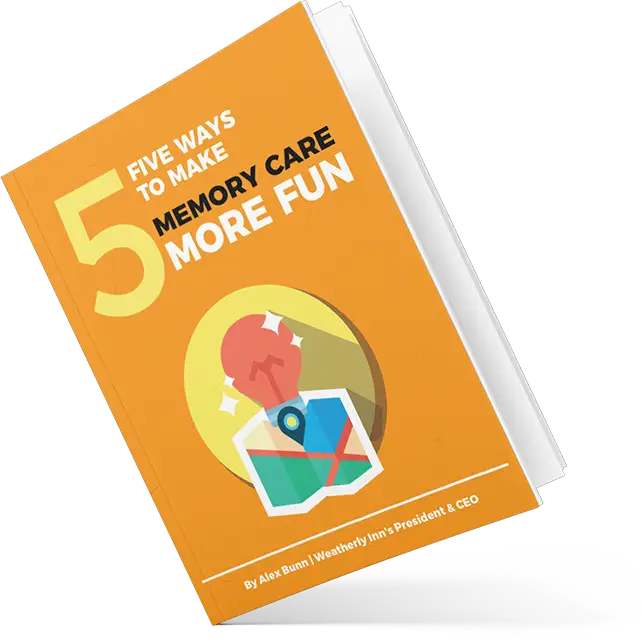February 21, 2019
Because dementia develops gradually over time, and the symptoms vary widely from memory loss to disorientation to personality changes, dementia is a disease unlike many others. Different people experience different symptoms, and the symptoms develop at different rates. For this reason, it can be difficult for those with memory loss and their loved ones to know when they need the specialized help that memory care can provide. Loved ones may feel overwhelmed with increased care demands, but they’re often uncertain if the time is right for transitioning into a community specially designed for dementia. In this article, we’ll explore six signs it’s time for memory care.
What are Memory Care Services?
Before we dive in, let’s explore what memory care communities are and how they differ from assisted living communities.
Memory care communities are specifically designed and specially equipped to serve people with dementia, through the early to late stages of the disease. Care in these communities is supervised by nurses educated on memory loss and trained to work with people who struggle with dementia. The staff creates a regular routine and structured activities to make residents feel comfortable and confident. Buildings are secure so residents have freedom but don’t accidentally wander away, and the interiors are designed to make it easy for staff to quickly see and help residents. Memory care communities offer those with dementia an enjoyable way to live their lives while providing loved one’s peace of mind, knowing their family member is safe and secure.
Assisted living communities are also a long-term living option, but they aren’t specialized to serve this specific group of seniors. They’re designed for those who may need extra help with daily activities and medication management. Assisted living communities give residents peace of mind knowing meals and maintenance are being taken care of. Many of these communities also offer a variety of social activities as well as transportation services. Weatherly Inn offers both assisted living and memory care and will provide a free assessment by a nurse to determine which is appropriate for your loved one.
Signs It’s Time for Memory Care
f you’re thinking about your loved one’s needs and evaluating the options, consider these six signs it may be time for memory care.
1. Weariness of Loved Ones
Any type of caregiving is exhausting, as physical demands wear down those who provide services to a loved one. From performing extra chores to offering regular transportation, multiplying the items on an already-busy to-do list can be overwhelming. Caring for a loved one who has dementia is even more challenging, due to the emotional demands that often accompany this type of care. Stress can quickly pass a healthy threshold. As a caregiver, you shouldn’t ignore burnout even if you think it is minor. Your own health (both physical and mental) can suffer significantly if it isn’t addressed, magnifying the problem. You must take good care of yourself before you can offer good care to others. If this means getting help with caregiving, then getting help is the best option. Memory care professionals have specialized training to meet the unique demands of caring for those with dementia and can offer invaluable help.
2. Increase in Health Needs
Memory loss often leads to a cascading series of health problems. Those suffering from dementia may forget to take important medications or may take too much, causing a health crisis. The inability to prepare nutritious meals on a regular basis can result in greater occurrences of the cold and flu. If your loved one is easily confused, getting lost (even when only a short way from home) can lead to anxiety and other mental health issues. If you realize that additional health issues are slowly accumulating, it’s a good sign that it’s time for memory care services.
3. Concerns for Safety
Confusion-caused wandering or disorientation can lead to consequential safety issues. Loved ones with dementia who are still driving have an increased risk of car accidents. Those who head out on foot may suddenly find themselves somewhere they don’t recognize due to memory loss, and panic may make them more prone to risky behavior like crossing the street at the wrong time or heading farther away from home. Falls happen more frequently since those with dementia sometimes lose their habitual knowledge of where staircases end or where they’ve placed a basket of laundry or other items that becomes a tripping hazard. If you worry about your loved one’s safety, it may be time to consider memory care living.
4. Decline in Hygiene
Memory loss can also lead to forgetting one’s personal hygiene. Those with dementia may forget to bathe, brush their teeth, put on fresh clothing, style their hair, or shave. Sometimes, they may realize they need to do these things but they’ve forgotten how and are embarrassed to ask. This can cause additional mental suffering for those who are dealing with dementia. Seeing a trend in declining personal hygiene can indicate a need for expert assistance that memory care offers.
5. Susceptible to Scams
Forgetting to pay bills is common with those who have dementia. Although everyone occasionally forgets to make a payment until the due date has passed, if you see multiple past-due notices or if your loved one starts receiving calls from collection agencies, you know that help is needed. Beyond forgetting to make payments, those with dementia are more susceptible to fraud. Scammers are notorious for targeting seniors whose memory loss makes them less aware of the warning signs of a scam. Even legitimate organizations like charities or magazines may contact your loved one multiple times within a short period of time for donations or subscription renewals.
6. Challenges with Shopping
If your loved one doesn’t have a history of stocking up on items, notice if multiples of the same items start appearing in the home. Those with dementia often forget that they’ve purchased an item already, and may think they still need it. Another common problem for those who have dementia is an increase in not wanting to throw anything out, since they may lose the ability to reason between what is valuable and what isn’t. If you notice items accumulating, it’s often a sign that specialized care may be needed.
Preparing for Memory Care Living
If you’ve recognized one or more of these signs it’s time for memory care, keep in mind that the transition can be a positive one. Moving to memory care can be a new chapter in the life of your loved one. When possible, share the many benefits and answer your loved one’s questions to give him or her confidence that memory care will indeed improve the quality of life. Keeping your loved one involved in the decision, and allowing him or her to maintain as much power as possible will greatly ease the transition. Memory care can offer the chance to have a fresh start and to take part in activities that are enjoyable and add meaning to life.



